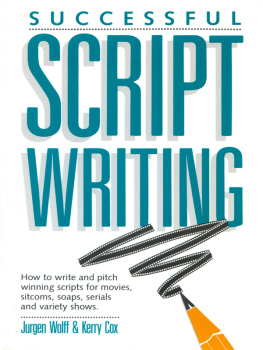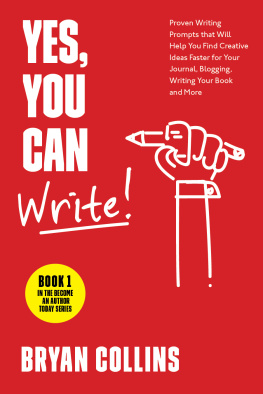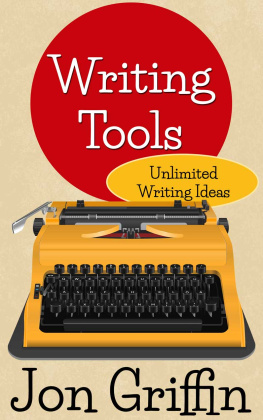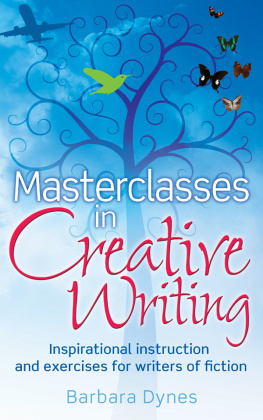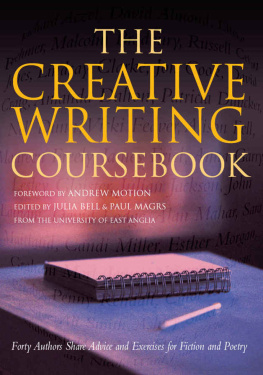Praise for Jurgen Wolff
Hes full of encouraging examples and practical tips, many of
them more far-reaching than they seem at first glance. Wolff
suggests a number of ways to get the imagination going, such as
his What if? exercise.
Financial Times
The real genius of Your Writing Coach is its accessibility to writers
of all personalities and genres. Logic and good business practices
meet creativity and self-exploration in these 248 pages, leading
writers down a path of personalized success. The title is apt; Jurgen
Wolffs engaging style ensures that his encouragement will be
echoing in writers ears for years to come.
Anastasia K Bond, Oregon Writers Colony newsletter
Your Writing Coach is the real dealno fluff or padding, just
concentrated insider knowledge. By far the best book on writing
I have read.
Rupert Widdicombe, writer and journalist
Absorbing and inspiring, Your Writing Coach is destined to become
an instant classic. Wolffs treasure trove of advice and insider
secrets will prove to be an indispensable friend to all those who
aspire to the writing life.
Amanda Barry Hirst, author of PR Power
Your Writing Coach is an antidote to the bad advice aspiring
writers are often given. There are only two books on writing
I recommendStephen Kings and this one.
William F. Owen, author of Blackfoot Is Missing
Your Writing Coach will help you find the insights of the writing
craft. Pick it up and let it guide you to success.
Xavier Koller, Academy Award-winning director,
Journey of Hope
Jurgen Wolff demystifies the writing process in a series of easy-to
understand steps guaranteed to make you a better writer.
Phil Doran, author of the bestselling The Reluctant Tuscan
Dedicated to the memory of John Hixon,
a fine young writer who had much more to give.
YOUR CREATIVE WRITING
MASTERCLASS
Advice from the best on writing successful
novels, screenplays and short stories
JURGEN WOLFF

First published by
Nicholas Brealey Publishing in 2012
|
|---|
Carmelite House | Hachette Book Group |
50 Victoria Embankment | 53 State Street |
London EC4Y ODZ | Boston, MA 02109, USA |
Tel: 020 3122 6000 | Tel: (617) 523-3801 |
www.nicholasbrealey.com
www.YourCreativeWritingMasterclass.com
Jurgen Wolff 2011
The right of Jurgen Wolff to be identified as the author of this work
has been asserted in accordance with the Copyright, Designs and
Patents Act 1988.
ISBN: 978-1-47364-530-1
British Library Cataloguing in Publication Data
A catalogue record for this book is available from the
British Library.
All rights reserved. No part of this publication may be reproduced, stored
in a retrieval system, or transmitted, in any form or by any means,
electronic, mechanical, photocopying, recording and/or otherwise without
the prior written permission of the publishers. This book may not be lent,
resold, hired out or otherwise disposed of by way of trade in any form,
binding or cover other than that in which it is published, without the
prior consent of the publishers.
Illustrations by the author.

Printed in the UK by Clays Ltd, St Ives plc.
Contents
Introduction
You want to write a novel, a screenplay, a play, or a short story. You probably have lots of ideas, but perhaps youre unsure of how to structure your plot or how to make your characters come alive on the page. Where can you look for guidance and models? One of the reasons I wanted to write this book is that in my classes at the University of Southern California and private workshops all over the world over the last 20 years, Ive noticed writers looking in all the wrong places.
Aspiring screenwriters were looking to the top-grossing films of the moment, or the hottest TV shows of the day.
Aspiring novelists were taking their cue from the latest bestseller lists.
Sometimes there are excellent novels on the bestseller lists, and some superb movies make a lot of money at the box office. But often the result of emulating the hit of the moment is a watered-down version of the original.
There is a better place to look: the great classic novels of the past two centuries, as well as more recent books and films that have shown enduring qualities.
The core of this book is advice from past masters like Jane Austen, Robert Louis Stevenson, Vladimir Nabokov, Anton Chekhov, and Charles Dickens, as well as current writers like Martin Amis, JK Rowling, Ray Bradbury, Elmore Leonard, and Salman Rushdie.
Of course, hearing advice is not the same as applying it. Thats why Ive added a wealth of exercises to help you make the transition from one to the other. Whether youre starting with a glimmer of an idea or already have a first draft youd like to polish so you can launch it confidently into the marketplace, a combination of advice and applications can guide you to success.
While you will find a lot of support and guidance here, this book isnt about a quick fix. Those looking for some kind of magic template or fill-in-the-blanks form wont find them here. The writers quoted in these pages invested not only their time but also their heart and soul in what they wrote. They accepted the fact that writing well requires courage, perseverance, and an independent spirit. That doesnt mean they always had confidence in what they were writing, though. As youll read, many of them experienced anxiety every time they faced a blank page, and sometimes they felt like imposters for daring to assume, or even hope, that others would find their words of interest. They continued anyway, and their willingness to tread this difficult path has brought enjoyment and enlightenment to millions around the world. If you are ready to embark on your own version of that adventure, this book is for you.
A quick tour of what awaits
We start with a look at what inspires writers and how you can draw on your memories, your dreams, and even your fears to feed your imagination. This section also emphasizes the importance of letting ideas germinate, allowing your subconscious mind to do some of the work before you move to the keyboard.
Because great characters are the foundation of enduring works of fiction, the next section includes several chapters on creating characters that come alive on the page and live on in the memory of readers or movie-goers. Youll find an organic method for discovering characters rather then inventing them. We also discuss the huge importance of status, both actual and perceived, in the relationships between your characters. Theres a chapter on how to let the dialogue reflect your characters, and also the link between character and setting. When all these are aligned, you may find that the characters seem to be taking over the story, and we look at the nature of that experience too.
The next section is about the integration of character and plot. Here youll find out how to pick the most appropriate point of view, how to exploit the conflicts that drive your characters, and practical methods for planning your plot. Crafting a powerful opening, using foreshadowing, dealing with the difficult middle, and bringing your story to a rewarding end are all covered, as are the question of theme and the process of rewriting.


